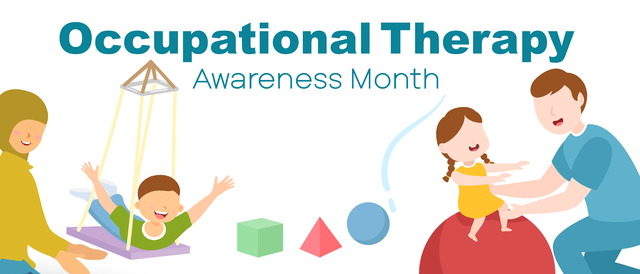
April is Occupational Therapy Awareness Month, and this is a time to learn about a service that can truly change lives, especially for children with developmental delays or disabilities. As Muslim parents, we know that every child is an amanah (trust) from Allah (SWT), and we’re always seeking ways to support them in becoming the best version of themselves whether it’s physically, emotionally, and spiritually. Occupational therapy (OT) can be a powerful part of that journey.
What is Occupational therapy?
Occupational therapy helps people gain or improve the skills they need for everyday life. For children, this might include things like writing, eating, playing, getting dressed, or focusing in school. OT supports kids who may be struggling because of autism, ADHD, sensory processing challenges, physical disabilities, or delays in developments.
In short, if a child is having trouble doing things other kids their age can do, an occupational therapist can help.
Why it matters for Muslim families
We often hear from parents who are unsure if their child is just a “late bloomer” or if something more is going on. The truth is, early help makes a big difference. Islam encourages shifa (healing) and seeking knowledge. The Prophet (SAW) said, “There is no disease that Allah has created, except that He also has created its treatment.” (Sahih al-Bukhari, 582)
Occupational therapy isn’t about labeling the children, but to empower them. When a child gets the support they need, they can become more independent at home, in school, and in their deen, InshAllah. They can learn to participate in Salaah (prayer), attend Islamic schools, play with siblings, and build confidence all in ways that match their unique needs.
What does Occupational therapy look like?
Occupational therapy depends on the child. A therapist might work on:
- Fine motor skills (like using scissors or holding a pencil).
- Sensory needs (helping a child who is overwhelmed by sounds or textures).
- Daily routines (brushing teeth, eating, putting on clothes, etc).
- Emotional regulation (managing big feelings, or focusing in the classroom).
These may seem like small things, but they have a big impact on a child’s tarbiyah (upbringing).
How can parents get started?
- Observe your child: Is your child having challenges doing basic tasks? Are they often frustrated, sensitive to touch or sound, or lagging behind their peers?
- Talk to your pediatrician: Share your concerns. Ask if an occupational therapy evaluation is right for your child.
- Be open to support: There’s no shame in getting help. In fact, it’s part of our tawakkul (faith) that we tie our camel, and then leave everything else in the hands of Allah (SWT).
- Advocate for your child: Whether in public school, private Islamic school, or at home, your child has the right to learn and grow in a way that works for them.
A reminder from our faith
Our beloved Prophet (SAW) treated each person according to their ability, their needs, and their strengths. Let us follow that Sunnah with our children. Supporting a child with special needs or developmental delays is not a burden, it’s an act of worship. It’s a form of sabr (patience), rahmah (mercy), and ihsan (excellence).
During Occupational Therapy Awareness Month, let’s raise awareness not just with facts, but with compassion and action. Let’s make sure no child is left behind because EVERY child deserves an Islamic education, and EVERY child deserves an Islamic education.
